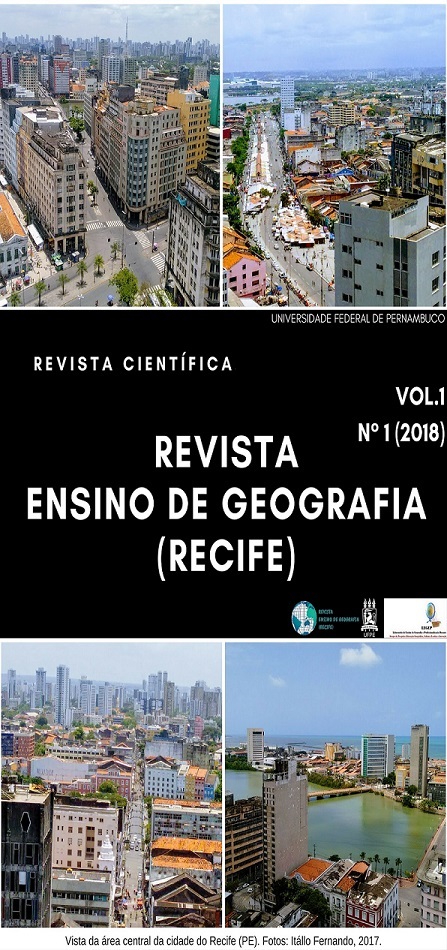ESTABELECENDO DIÁLOGOS ENTRE A ECOCIDADANIA E A EDUCAÇÃO GEOGRÁFICA: CONVERGÊNCIAS COM EDUCAÇÃO AMBIENTAL
DOI:
https://doi.org/10.51359/2594-9616.2018.240419Abstract
O objetivo central do presente artigo é problematizar o ensino de Geografia, a partir do debate da ecocidadania, possibilitando interações dialógicas entre a escola/sala de aula e a vida/cotidiano. Desta feita, faz-se uma análise reflexiva com vista a construção de um estado do conhecimento sobre a temática proposta. O ensino de Geografia, tendo a motivação de fomentar a cidadania, precisa problematizar as questões inerentes ao processo formativo e a capacidade do aluno, enquanto sujeito social inserido em um cotidiano. Logo, desponta na sala de aula a oportunidade de tratar a ecocidadania, através do ensino de Geografia, conduzindo o aluno a um pensamento crítico e reflexivo sobre as problemáticas socioambientais que afetam sua vivência cotidiana, de forma ativa e corresponsável.Downloads
Published
2018-01-23
How to Cite
Botêlho, L. A. V. (2018). ESTABELECENDO DIÁLOGOS ENTRE A ECOCIDADANIA E A EDUCAÇÃO GEOGRÁFICA: CONVERGÊNCIAS COM EDUCAÇÃO AMBIENTAL. Revista Ensino De Geografia (Recife), 1(1), 144–155. https://doi.org/10.51359/2594-9616.2018.240419
Issue
Section
Artigo Científico
License
Authors who publish with this journal agree to the following terms:- Authors retain copyright and grant the REVISTA ENSINO DE GEOGRAFIA (RECIFE) right of first publication with the work simultaneously licensed under a Creative Commons Attribution NonCommercial International 4.0 (CC BY-NC) that allows others to share the work with an acknowledgement of the work's authorship and initial publication in this journal.
- Authors are able to enter into separate, additional contractual arrangements for the non-exclusive distribution of the journal's published version of the work (e.g., post it to an institutional repository or publish it in a book), with an acknowledgement of its initial publication in this journal.
- Authors are permitted and encouraged to post their work online (e.g., in institutional repositories or on their website) prior to and during the submission process, as it can lead to productive exchanges, as well as earlier and greater citation of published work.



